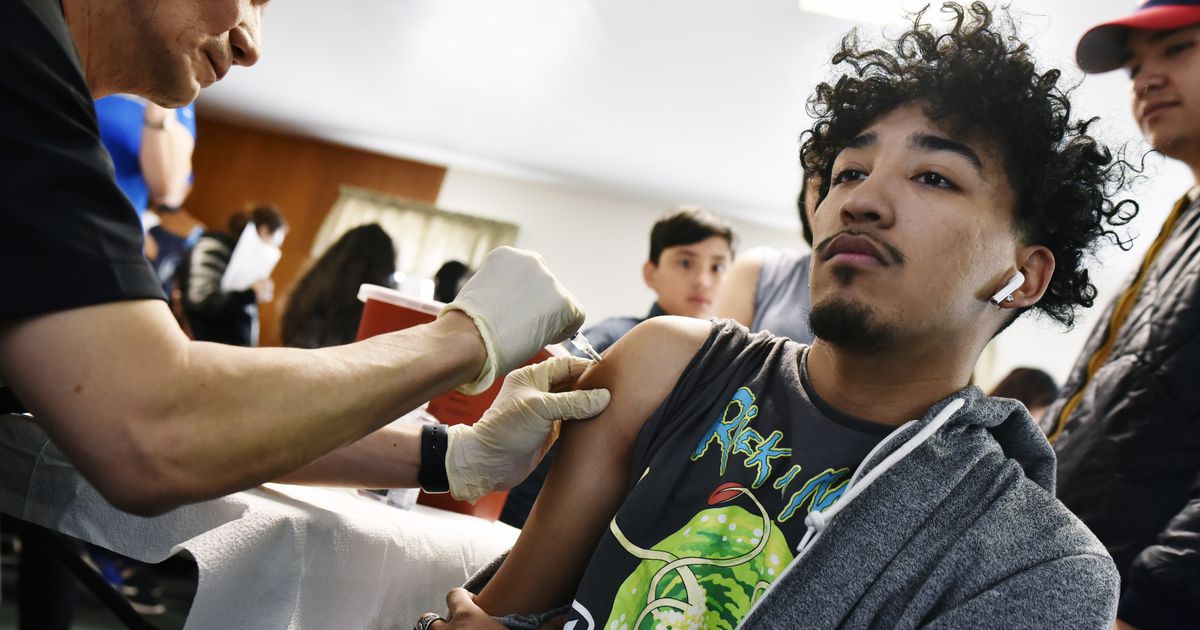Nearly everyone is spending more on health care, often a lot more. But did you realize people are using it less?
Utilization of health care is growing slowly, especially in Texas, yet health spending continues to rise much faster than inflation.
Those are some of the findings from the latest study by the Health Care Cost Institute, an independent research firm that evaluates billions of insurance claims from Americans with employer-sponsored insurance.
In Texas, over 13 million residents get their coverage through an employer, far more than with Medicare, Medicaid and the exchanges selling individual plans.
Based on their claims, health spending in Texas averaged $6,110 per person in 2018, almost 4% higher than the U.S. average. Yet usage in the state has barely budged. It rose a cumulative 1.5% from 2014 to 2018, less than half the increase in the U.S.
While usage ticked up nationwide in 2018, the measure was flat in Texas for the past two years in the study. That means the vast majority of higher health spending was due to higher prices paid for hospitals, doctors and prescriptions.
“The increase in prices means people are paying more for the exact same set of services — and they aren’t necessarily getting any benefit for the higher costs,” Niall Brennan, CEO of the institute, wrote in the study.
The data analyzes 2.5 billion medical claims on 40 million Americans annually. It uses anonymous claims contributed by Aetna, Humana, Kaiser Permanente and United Healthcare.
The rise in prices and decline in usage was most pronounced in the state’s metro areas, according to additional data by the research firm.
In Dallas-Fort Worth, health care prices rose 15% from 2012 to 2016, and usage declined by 12% over the same time, the institute said. The same trends occurred in Houston, Austin, San Antonio and a handful of other Texas cities.
Paying more for health care and using it less coincides with a steady rise in high-deductible insurance plans. In 2014, 1 in 4 insured employees had a high-deductible plan and by 2018, the share had grown to 1 in 3, the study said. Such plans had a family deductible of at least $2,700, which helped drive a nearly 15% increase in out-of-pocket spending for insured patients.
“People want to push off their primary care until they really need something, and then it’s a lot more expensive,” said Dr. Christopher Crow, president of Catalyst Health Network, which includes 790 primary care providers. “It’s a perverse incentive.”
It also could be dangerous, given the growing threat of coronavirus.
“If people are making health care decisions based on concerns about the cost, that’s particularly problematic when we think of pandemics,” said Sally Rodriguez, chief of staff at the Health Care Cost Institute. “If people aren’t interacting with the health care system, how can the system help stop the spread of the disease?”
The data collected by the institute adds to a growing body of research that rising prices are the primary reason for higher health spending. From 2014 to 2018, higher prices accounted for nearly three-fourths of the increase after adjusting for inflation, the study said.
That’s the key takeaway, said Stacey Pogue, a health policy analyst at the Center for Public Policy Priorities in Austin.
Last week, she heard Brennan’s presentation on Texas results and concluded that the rise in health spending wasn’t due to frequently cited factors, such as an aging population, the inappropriate use of emergency rooms or people simply demanding more care.
“Those aren’t the big drivers,” Pogue said. “It’s all about the prices. They’re going up year after year without necessarily increasing the quality of care. It’s kinda shocking.”
Several factors contribute to the pricing power of providers, starting with their growing market clout. Hospital systems have become larger by opening new facilities and buying rivals, including physician practices. The pharmaceutical industry has consolidated, too, and private equity firms have snapped up doctors groups.
Ultimately, these big providers have more negotiating power with employers and insurance companies, which paves the way for steady increases in pricing. In contrast, rates paid by Medicare are set by the government.
In Dallas-Fort Worth, the booming economy contributes to high prices. The region leads all metros in job growth, and its unemployment rate is near a historic low. In such a tight labor market, companies are reluctant to take strong steps to curb health spending, such as limiting the network of hospitals and doctors.
As a result, D-FW has high health care prices — 16% above the national median in 2016, according to the institute. A partner website, Guroo.com, provides average prices for a slate of procedures, and local patients paid much more than the averages in Texas and the nation.
A hip replacement in Dallas, for example, was over $10,000 more than the U.S. average. A coronary angioplasty, used to open a blocked heart artery, was $5,000 more. A lumbar fusion, a type of spinal surgery, was over $13,000 more. These numbers were taken from paid insurance claims from mid-2014 to mid-2016.
“The business community is willing to pay prices that Medicare and Medicaid won’t pay,” said Marianne Fazen, of the Dallas-Fort Worth Business Group on Health. “It’s a total cost shift.”
The business group includes over 165 companies with about 238,000 workers, and they work together on strategies to lower health costs. Some have been aggressive about adopting innovations, but that hasn’t stopped the rising prices in the D-FW market.
“How long are employers gonna take it?” Fazen said.








